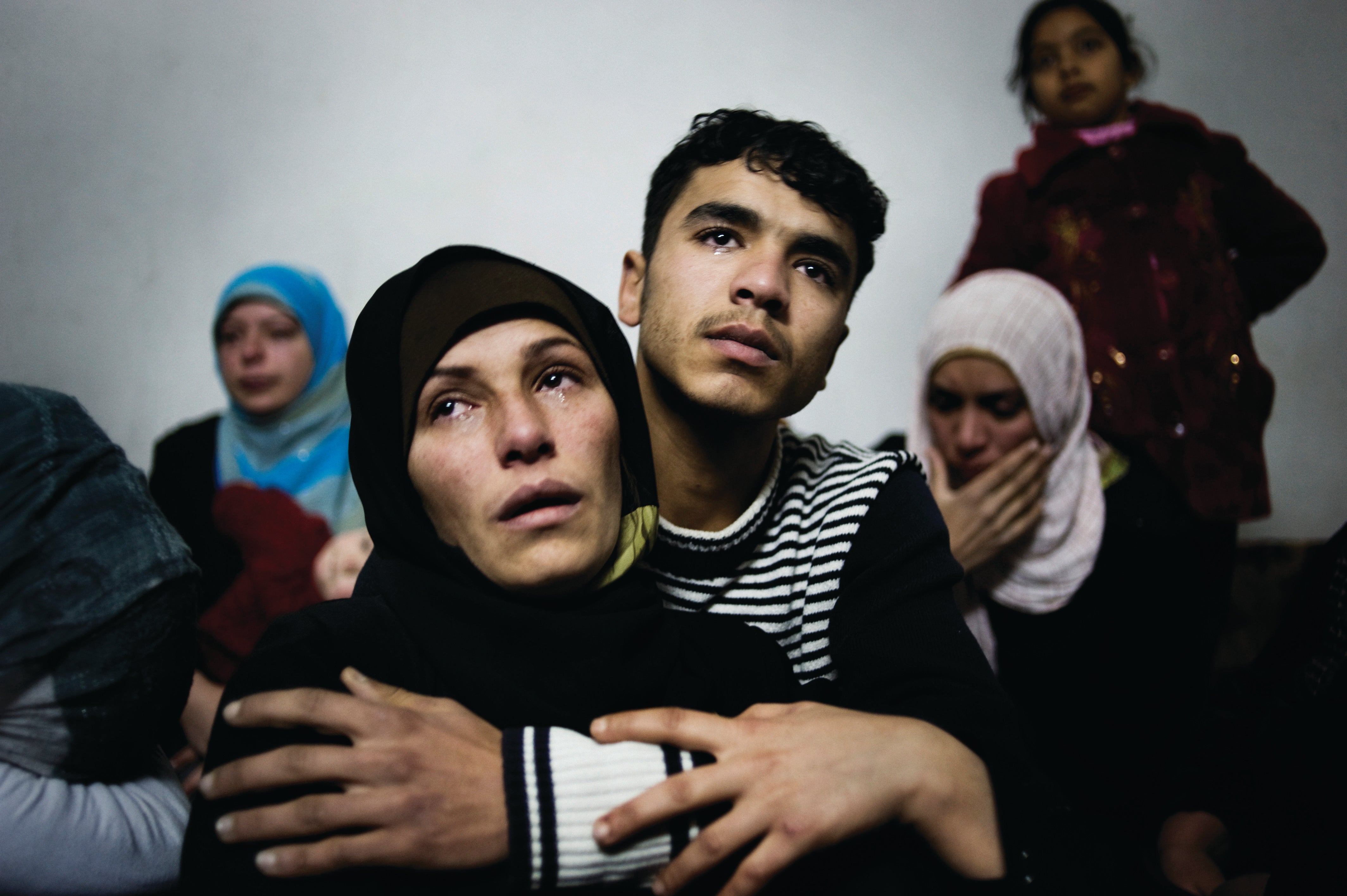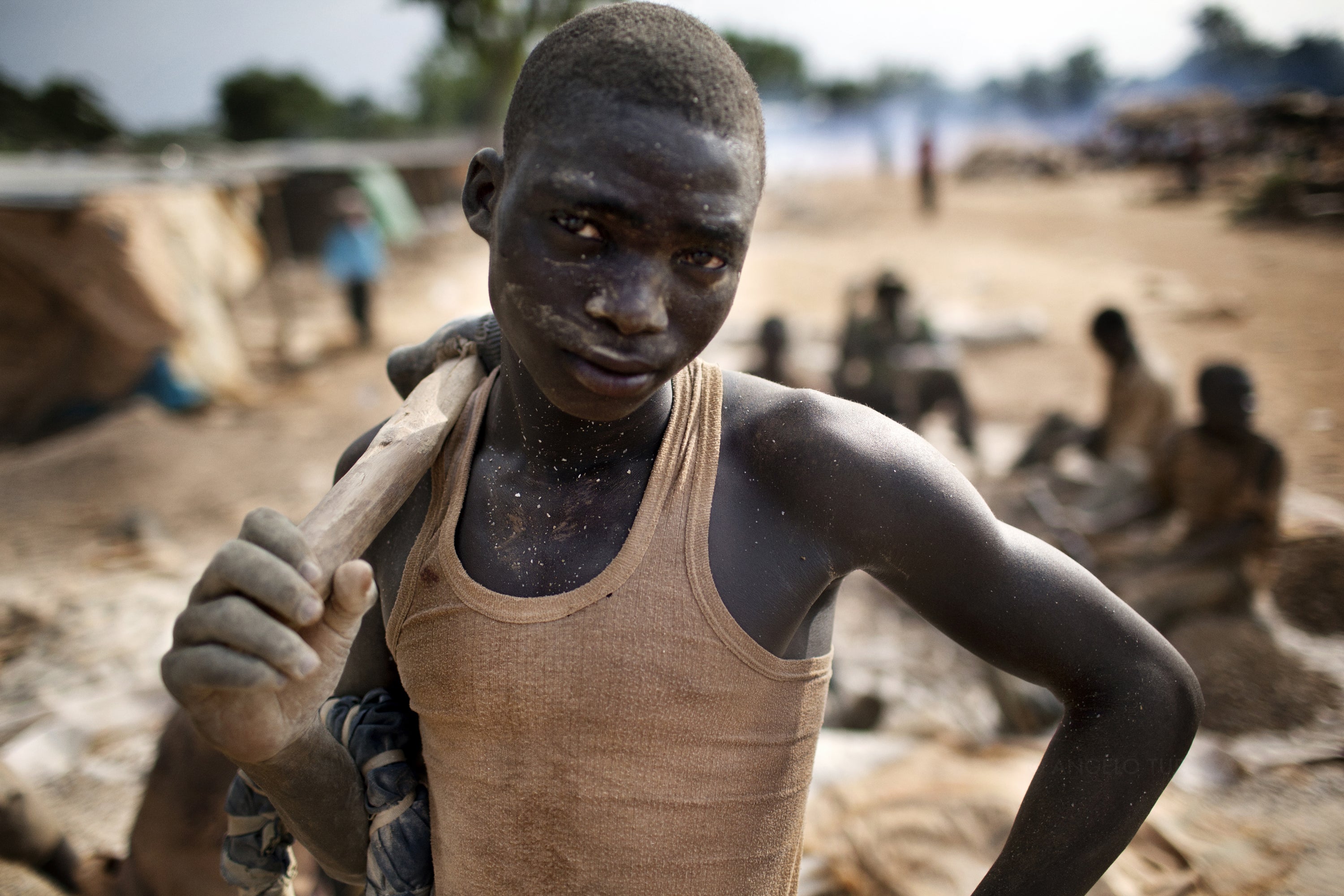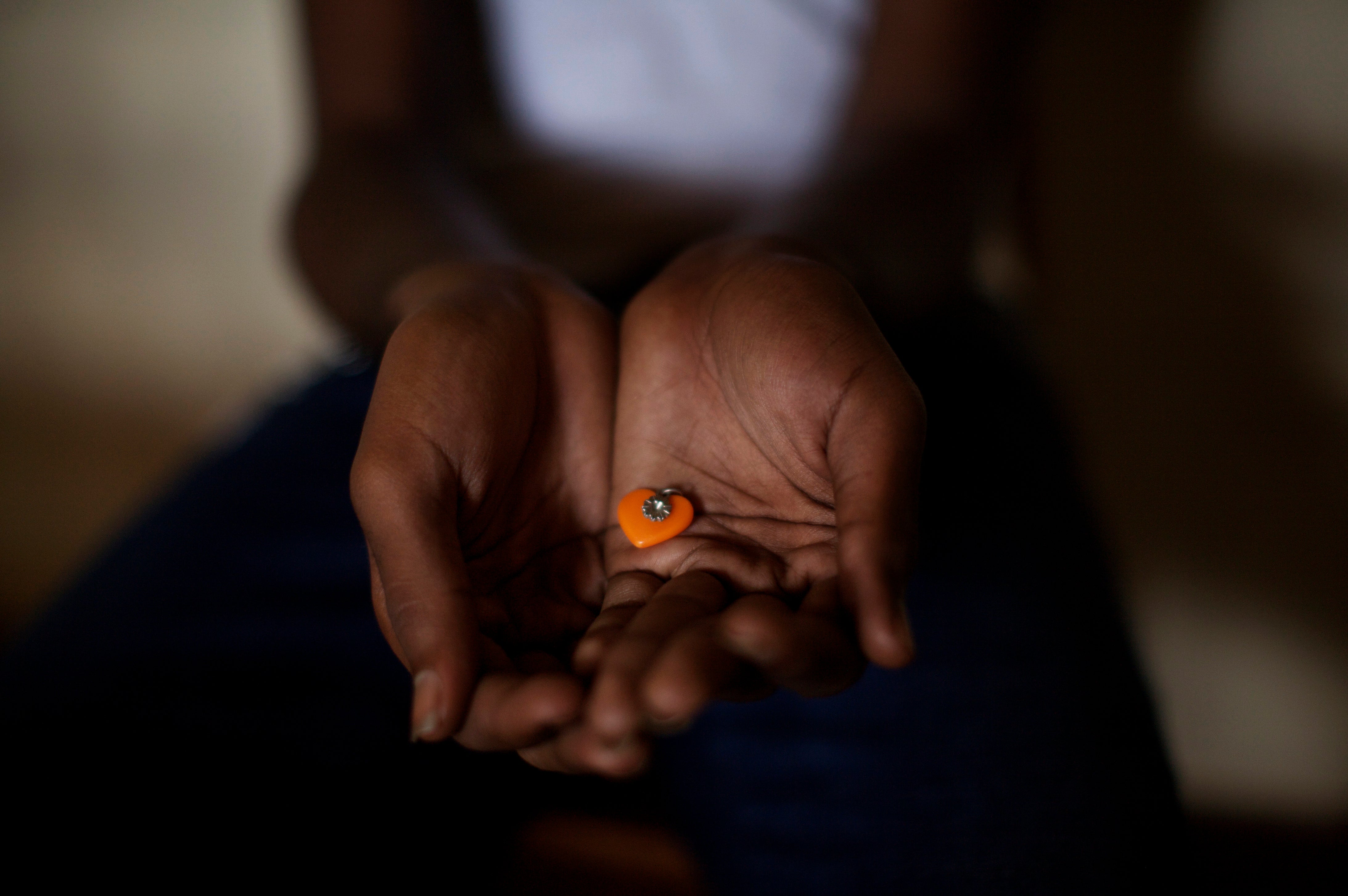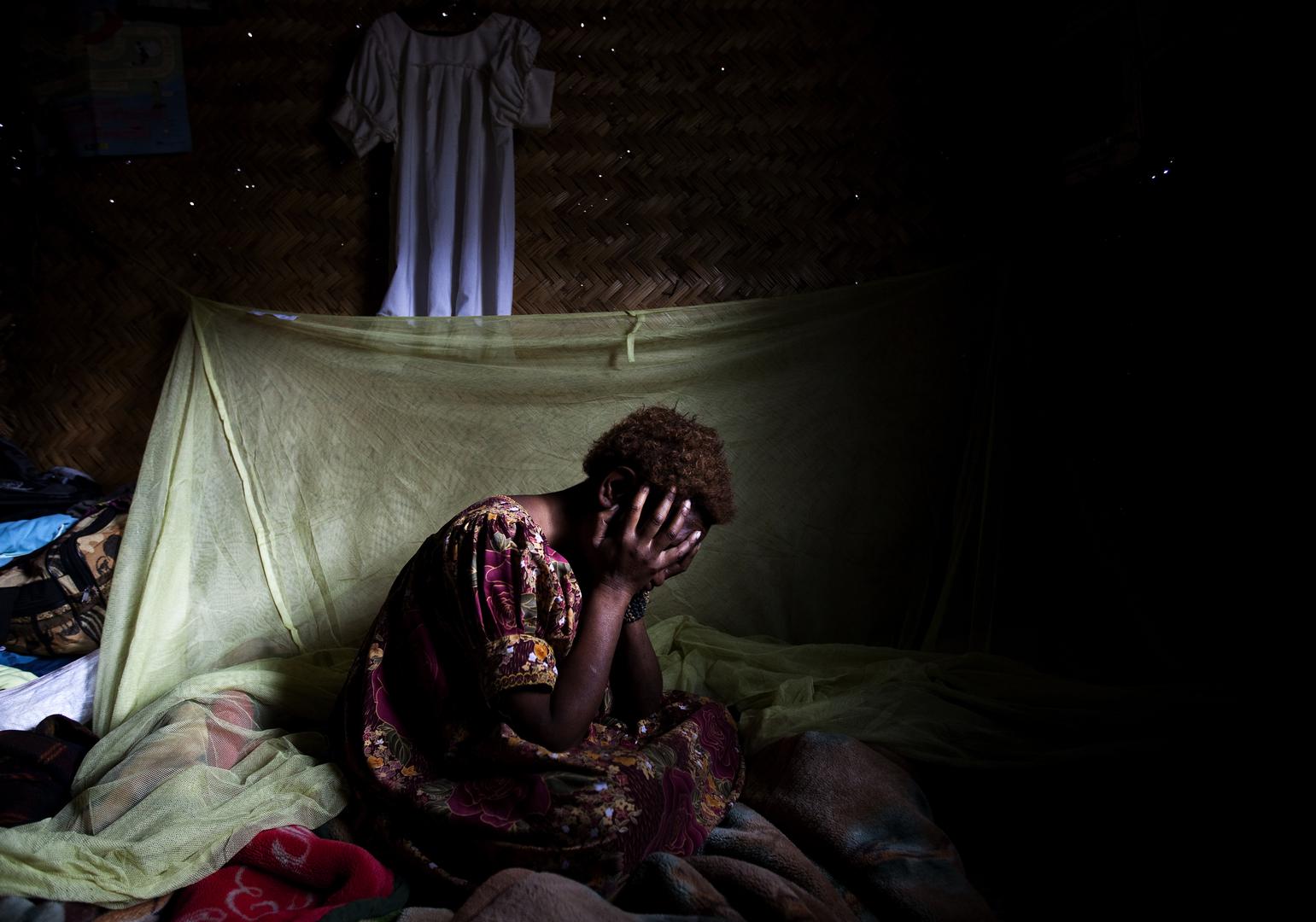Following February 2012 presidential elections, President Gurbanguly Berdymukhamedov retained unchallenged power, and Turkmenistan remains one of the world’s most repressive countries.
The country is virtually closed to independent scrutiny, media and religious freedoms are subject to draconian restrictions, and human rights defenders and other activists face the constant threat of government reprisal. The government continues to use imprisonment as a tool for political retaliation.
Turkmenistan continued to expand relations with foreign governments and international organizations in 2012, but without meaningful outcomes for human rights.
Cult of Personality and Presidential Elections
President Berdymukhamedov, his relatives, and associates enjoy unlimited power and total control over all aspects of public life in Turkmenistan. In official publications Berdymukhamedov, who has been power since 2007, is known as arkadag (patron), and his cult of personality continued to grow during the year. In April 2012, for example, he won a carefully choreographed car race.
Berdymukhamedov was reelected president on February 12, 2012. According to the Central Election Committee (CEC), he received 97 percent of the vote with a nearly 97 percent turnout. Conditions for a competitive vote were so lacking that the Office for Democratic Institutions and Human Rights, part of the Organization for Security and Co-operation in Europe (OSCE), declined to send an election observation mission.
A law on political parties adopted in January 2012 envisaged for the first time the registration of parties other than the ruling party. In August, a close associate of Berdymukhamedov founded the Party of Industrialists and Entrepreneurs, but there is no indication that it will present meaningful political alternatives.
Civil Society
Turkmenistan’s repressive atmosphere makes it extremely difficult for independent nongovernmental organizations to operate. Human rights and civil society activists and journalists, including those living in exile, face a constant threat of government reprisal.
In August, state security services warned at least four activists not to attend a meeting convened by the OSCE to welcome its new ambassador. In July, a state security official warned one activist not to try to meet OSCE Representative on Freedom of the Media Dunja Mijatović when she visited Ashgabat, the capital.
In February, Natalia Shabunts—one of the few openly active human rights defenders—found a bloody sheep’s head on her doorstep in Ashgabat, one day after speaking about the presidential election with Radio Free Europe’s Turkmen Service.
For more than four years, the authorities have refused to reinstate the confiscated passport of Gurbandurdy Durdykuliev, a dissident, who cannot receive his pension or disability allowance, and cannot move freely inside the country without it.
Freedom of Media and Information
The state controls all print and electronic media and it is very difficult for foreign media to cover Turkmenistan because they often cannot access the country.
Internet access remains limited and heavily state-controlled. The country’s only internet service provider is state-operated, and political opposition websites are blocked. Internet cafes require visitors to present their passports. The government is known to monitor electronic and telephone communications.
In the lead-up to the presidential election, the website for the Turkmen Initiative for Human Rights (TIHR)—a Vienna-based exiled human rights group—was disabled for nine days due to hacking, and the website of the exiled Turkmen political opposition endured several days of denial-of-service attacks.
Holders of Gmail accounts in Turkmenistan could not access their e-mails between February 16 and 26, and for two weeks in June, internet users could not access Ertir.com, a web platform popular among young adults for social contact and political discussion.
Freedom of Movement
Turkmenistan’s government continues to restrict the right to travel freely internationally by means of an informal and arbitrary system of travel bans commonly imposed on civil society activists and relatives of exiled dissidents.
After twice barring Bisengul Begdesenov, a former political prisoner, from traveling abroad, migration authorities finally allowed him to travel in May 2012.
Several incidents in 2012 indicated that Turkmen authorities still bar people from traveling abroad with valid Kyrgyz visas in their passports, continuing a practice begun in late 2009. In August 2012, the migration office of the Ashgabat airport without explanation barred a dozen students from travelling to Bulgaria and Russia to commence their studies. In October, Turkmen authorities barred a number of Turkmen citizens from traveling to seek medical treatment in neighboring Iran.
The Turkmen government continues to create travel obstacles for Turkmen citizens who also hold Russian passports. In December 2011, Turkmenistan Airlines warned travelers that from July 2013 tickets for destinations abroad will only be sold to holders of the new Turkmen international passport. The authorities use various pretexts to deny issuing new international passports to persons who continue to hold Russian passports, and require that they sign documents renouncing Russian citizenship.
Freedom of Religion
The right to freedom of thought, conscience, and religion is heavily restricted in Turkmenistan, where no congregations of unregistered religious groups or communities are allowed. Religious communities have been unable to register for years.
In February 2012, Ilmurad Nurliev, a Pentecostal pastor sentenced in 2010 to four years in prison on bogus swindling charges, was freed under a general amnesty.
According to Forum 18, an independent international religious freedom group, as of August 2012 at least four Jehovah’s Witnesses who are conscientious objectors were imprisoned, and five received suspended prison sentences for evading military service.
Forum 18 also reported that local officials harassed and threatened several Protestants for printing religious materials without state approval. Among them was a 77-year-old Baptist who had tried to print a book of his own Christian poetry. Police questioned him and threatened to press criminal charges but did not do so.
In three separate trials held in August 2012, courts fined at least five Protestants in Lebap province, northeast Turkmenistan, for engaging in religious activity without state approval.
Political Prisoners and Enforced Disappearances
Unknown numbers of individuals continue to languish in Turkmen prisons on what appear to be politically motivated charges. The justice system lacks transparency, trials are closed in political cases, and the overall level of repression precludes independent human rights monitoring.
In April 2012, the International Committee of the Red Cross (ICRC) made one visit to one prison. The government has persistently denied access to the country for independent human rights monitors, including international NGOs and 10 United Nations special procedures whose requests for visits remain unanswered.
In March, the Turkmen foreign minister announced that Ovezgeldy Ataev and his wife had been released from prison. Ataev was the constitutionally designated successor of dictator Saparmurad Niyazov. He and his wife were arrested shortly after Niyazov’s death in 2006.
However, the government ignored calls by several UN bodies to release well-known political prisoners Annakurban Amanklychev and Sapardurdy Khajiev, who had worked with human rights organizations prior to their imprisonment in 2006. Political dissident Gulgeldy Annaniazov, arrested in 2008, also remains imprisoned. He is serving an 11-year sentence.
In October 2012, the authorities arrested Geldymyrat Nurmuhammedov, a former government minister who had openly criticized the government, and sent him to a detention center to allegedly undergo six months of forced treatment for drug addiction, even though he had no history of drug use.
Two popular singers, Murad Ovezov and Maksat Kakabaev, whom courts sentenced on bogus charges in 2011 to five and seven years’ imprisonment respectively, remain behind bars. The sentences were retribution for their music and their involvement in a talk show that aired on a Turkish satellite channel in 2011. Kakabaev’s father, brother, and brother-in-law—also sentenced in 2011 to two-year prison terms for the broadcast—remain in custody.
Several dozen persons convicted in relation to the November 2002 alleged assassination attempt on Saparmurat Niyazov—including former Foreign Minister Boris Shikhmuradov and Turkmenistan’s former ambassador to the OSCE, Batyr Berdiev—remain victims of enforced disappearances. Their fate is unknown. Human Rights Watch is aware of unconfirmed reports that several defendants in the 2002 plot case have died in detention.
Sexual Orientation and Gender Identity
Homosexual conduct between men is criminalized with a maximum prison sentence of two years. The penal code does not mention same-sex relations between women. According to one local NGO, police sometimes blackmail and extort homosexual men due to their sexual orientation.
Illegal House Evictions in Ashgabat
In 2012, authorities in Ashgabat and the surrounding area failed to provide adequate compensation or redress to residents forcibly evicted and expropriated in previous years and whose homes were demolished without a court ruling. The demolitions made way for construction as part of massive urban renewal projects initiated in the late 1990s. Further demolitions are scheduled to continue through 2020 in some areas of Ashgabat.
Key International Actors
Several international actors continue to seek to leverage Turkmenistan’s energy wealth, sidelining concerns about the government’s human rights record. The European Union continued to press forward with a Partnership and Cooperation Agreement (PCA) with Turkmenistan, frozen since 1998 over human rights concerns, without requiring any human rights reforms in exchange. Throughout 2012, the European Parliament continued to hold up its necessary approval of the PCA over human rights concerns. At this writing, the European Parliament’s vote on the PCA remained pending.
The United Nations Human Rights Committee reviewed Turkmenistan in March 2012, and issued a highly critical assessment highlighting the government’s clampdown on freedom of expression and repression of civil society activism, torture, and ill-treatment in places of detention, and the lack of an independent judiciary. It directed the Turkmen government to report back within one year on measures taken to address them.
In October, the UN Committee on the Elimination of Discrimination against Women (CEDAW) issued its observations about the state of women’s human rights in Turkmenistan, expressing deep concern in particular about women’s disadvantaged and unequal status in many areas, including education, public life and decision-making, and the absence of specific legislation on violence against women, including domestic and sexual violence.
While in Turkmenistan for a July conference on media, the OSCE representative on freedom of the media called upon Central Asian states to guarantee freedom of media and expression online.
After having had no active projects on Turkmenistan since 1997, the World Bank is working to reengage in the country. It was unclear at this writing whether the bank will require improvements in governance as part of reengagement.




